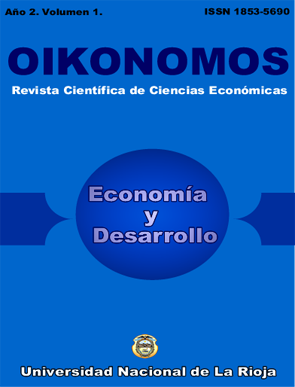Crisis financiera global y corporate governance.
Keywords:
Buen gobierno corporativo, Corporate governance, Acciones, Valor de la acción, Autorregulación, Transparencia, Junta directivaAbstract
La teoría del buen gobierno corporativo o corporate governance parte de la idea de tratar de maximizar el valor de las acciones representativas del capital social de la sociedad mercantil como estrategia para procurar el acercamiento de los inversores a la bolsa, exhibiéndoles mayores y mejores resultados económicos y elevando el valor de la acción. Para ello, desarrolla un conjunto de principios y conceptos tendientes a lograr una mayor confianza del inversor, basada en los conceptos de autorregulación y transparencia. Simultáneamente, procura que la junta directiva (directorio en la legislación argentina) siga preceptos de buen gobierno o buena gobernancia a fin de dar seguridad a los inversores y de garantizarles que sus intereses serán los mismos que los de los accionistas. Sin embargo, esta teoría ha facilitado muchos de los elementos que desembocaron en la crisis económico – financiera global actual, al haber exacerbado el interés en el valor de cotización de la acción, facilitando mecanismos contables tendientes a generar la ilusión de un valor creciente y confiado en demasía en los conceptos básicos de autorregulación y transparencia. La creencia en la existencia de un mercado libre que se rige por una “mano invisible” y que prescinde de la intervención del estado, ha permitido que –libres de toda supervisión- las sociedades cotizadas y entidades financieras hayan cometido verdaderos fraudes en contra de los accionistas y de la comunidad en general. El objeto de esta ponencia es tratar sobre algunos de esos elementos que han sido difundidos como valiosos y necesarios para el desarrollo de los mercados de valores, y analizar cómo han tenido influencia en las crisis bursátiles que, en rigor, son crisis de las sociedades mercantiles emisoras.AbstractThe theory of corporate governance is derived from the idea of the maximization of the value of the shares representing the company´s capital stock, as a strategy to attract investors to the stock market with greater and better economic results and increases in share value. With this goal in mind, a set of principles and concepts are developed which are aimed at achieving greater investor´s confidence based on the concepts of self-regulation and transparency. It also tries to encourage the Board of Directors (“Directorio” in Argentinean legislation) to follow the principles of good governance so as to build the investors´ confidence and guarantee that their interests are the same as those of the investors.However, this theory has had some part in the present global economic and financial crisis as it has not only excesively encouraged the interest in share market value and provided accounting mechanisms to create the illusion of increasing values, but also relied in excess on the basic concepts of self-regulation and transparency. The belief in the existence of a free market ruled by an "invisible hand" which dispenses with the government intervention has allowed listed corporations and financial organizations – free of any kind of surveillance – to commit frauds against the shareholders and the community at large. This paper intends to discuss some of these elements propagated as valuable and necessary for the development of the stock markets, and to analize how they have influenced the commercial crises which actually are crises of the business corporations which have spread them.Key Words: Corporate governance ; Shares ; Share value ; Self ; Regulation ; Transparency ; Board of managementDownloads
Published
2016-05-01
Issue
Section
Artículos

